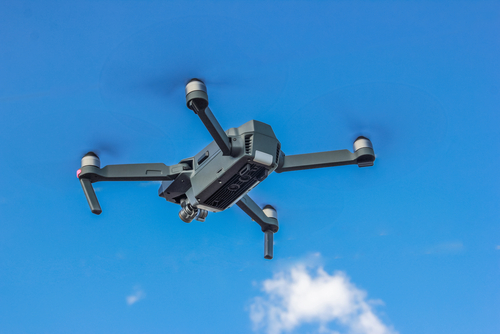
In a joint effort, a bipartisan collection of leaders from the House committees on homeland security, transportation and infrastructure, and judiciary, recently introduced the Counter-UAS Authority Security, Safety, and Reauthorization Act to maintain and expand federal anti-drone operations.
The legislation is led by House Committee on Homeland Security Chairman Mark Green, MD (R-TN) and Ranking Member Bennie Thompson (D-MS), House Committee on Transportation and Infrastructure Chairman Sam Graves (R-MO) and Ranking Member Rick Larsen (D-WA), and House Judiciary Committee Ranking Member Jerrold Nadler (D-NY). Specifically, it would renew and reform current legal authorities for the Department of Homeland Security (DHS) and Department of Justice (DOJ) related to drones. Without action, that authorization will expire in October.
“While drones are often used recreationally, they can also threaten the safety of Americans and our airspace,” Green said. “From criminal cartels smuggling contraband across the Southwest border to nefarious actors potentially conducting espionage on U.S. critical infrastructure, this new technology can pose significant risks when in the hands of those who seek to do us harm. This legislation meets the moment by ensuring DHS and DOJ have the appropriate authorities to act swiftly and decisively to detect, track, and mitigate hostile drone use, and to coordinate effectively with other agencies like the FAA or law enforcement partners in this pursuit.”
Notably, DHS and DOJ would be barred from using counter drone system manufactured by certain foreign entities and DHS would be authorized to acquire, deploy and operate counter systems by owners or operators of covered sites and critical infrastructure. New standards and pilot programs should also follow.
On top of this, the bill would modify counter-drone authorities at the Federal Aviation Administration (FAA) while spelling out protections for American civil liberties with regards to the use of drones. The administration would need to work with DHS and DOJ to create a plan for counter-drone operations at airports and create minimum performance requirements for any counter systems.
“This legislation is the product of months of bipartisan collaboration,” Nadler said. “Our final product allows the agencies that protect our critical infrastructure to do their jobs and permits law-abiding drone hobbyists and commercial UAS users to continue to use their devices. Strong privacy protections for drone user data, mandated disposal of communications information, and comprehensive agency reporting requirements will ensure that all Americans can continue to use and innovate UAS technology going forward.”
Green and the other co-sponsors also pushed forward with identical provisions as an amendment to the Fiscal Year 2025 National Defense Authorization Act (NDAA) in an effort to guarantee their success.




